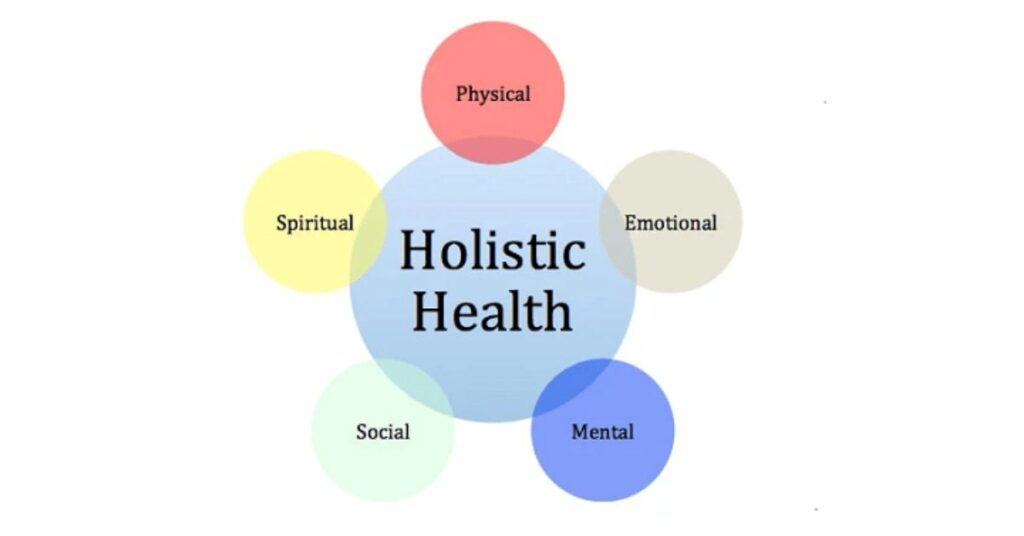The Total Health Institute (THI) has long been a beacon for those seeking holistic and alternative health treatments. Founded by Dr. Keith Nemec, the institute promises an integrative approach to healing that combines modern scientific advancements with traditional therapies to promote overall wellness of the mind, body, and spirit.
However, recent years have seen THI embroiled in controversy, patient complaints, and lawsuits that have cast a shadow over its practices and effectiveness. This blog post aims to provide an in-depth, comprehensive, and informative look at the Total Health Institute, its founder Dr. Keith Nemec, and the various legal and patient challenges it faces.
Who is Dr. Keith Nemec?
Dr. Keith Nemec is a well-known figure in the field of holistic and alternative medicine. With a career spanning over 40 years, Dr. Nemec has worked with more than 10,000 patients, offering treatments that aim to integrate the latest scientific advances with traditional methods.
Educational Background and Credentials
Dr. Nemec holds multiple degrees and certifications:
- Bachelor’s Degree in Human Biology from the National University of Health Sciences
- Doctorate in Chiropractic Medicine from the same institution
- Master’s Degree in Nutritional Medicine from Morsani College of Medicine
- Three Fellowships from the American Academy for Anti-Aging Medicine in:
- Regenerative Medicine
- Stem Cell Therapies
- Integrative Cancer Therapies
Dr. Nemec is certified in Peptide Therapy and Fertility, has published five books, and written numerous articles on health-related topics. His works include titles such as “The Perfect Diet” and “Seven Basic Steps to Total Health.” For the past 18 years, he has hosted the radio program “Your Total Health” on Chicago’s AM1160 and has frequently appeared on the talk show “Let’s Talk” in Chicago.
Philosophy and Approach
Dr. Nemec’s approach to health is deeply rooted in the belief that the mind, body, and spirit are interconnected. His treatments focus on addressing the root causes of health issues rather than just managing symptoms.
This philosophy is reflected in his areas of specialization, which include neuroimmunology, nutritional medicine, and stem cell biology. He emphasizes how diet, lifestyle, and mental health influence overall well-being, particularly the health of stem cells.
Overview of the Total Health Institute
Located in Wheaton, Illinois, the Total Health Institute (THI) has been a prominent establishment in holistic health since its founding in 2000. The institute aims to integrate cutting-edge scientific advancements with traditional healing methods to offer a comprehensive approach to wellness.
Mission and Vision
The mission of THI is to provide an integrative healthcare model that addresses the root causes of illness, promotes healing, and enhances overall health. The institute’s vision is to create a healthcare environment where patients receive personalized care that encompasses mental, emotional, and physical well-being.
Services and Treatments
THI offers a variety of services and treatments, which include:
Nutritional Counseling: Personalized diet plans based on individual health needs and conditions.
Colonic Hydrotherapy: A procedure to cleanse the colon and promote digestive health.
Lymphatic Drainage: Techniques to improve lymphatic system function and reduce toxins.
Chiropractic Adjustments: Spinal manipulations to alleviate pain and improve overall health.
Detoxification Programs: Methods to remove toxins from the body and improve organ function.
Holistic Therapies: Treatments such as acupuncture, massage therapy, and stress management techniques.
These treatments are designed to work together to address the underlying causes of health issues, providing a more holistic approach to healing.
Patient Complaints: Personal Stories and Experiences

Despite the promising mission and vision of THI, several patients have come forward with complaints about their experiences. These complaints range from issues with staff conduct to dissatisfaction with the effectiveness of treatments.
Case Study 1: Alex Johnson
“Alex Johnson” (a pseudonym for privacy reasons) shared his experience with THI, highlighting significant concerns about the institute’s environment and practices. Initially excited about the integrated healthcare approach, Alex soon found himself disillusioned by what he perceived as poor conduct from staff members.
Key Complaints:
Staff Conduct: Alex described encounters with staff who were rude and dismissive, which contradicted the supportive environment he had hoped for.
Financial Concerns: Alex was shocked by the cost-intensive nature of treatments and the requirement to purchase supplements from the institute. The lack of transparency in billing further added to his frustration.
Quote: “I was really hoping for a supportive environment, but instead, I encountered staff who were, at times, rude and dismissive. Every aspect of my treatment was tied to an additional cost, and the lack of transparency in billing just added to my frustration.”
Case Study 2: Anthony Bavaro
Anthony Bavaro sought alternative treatment at THI for his wife’s stage 4 cancer. His experience was marked by initial hope but ultimately led to profound disappointment and financial burden.
Key Complaints:
Misleading Promises: Bavaro reported that Dr. Nemec had given them optimism despite the severity of his wife’s illness. They invested in the institute’s treatment program based on these assurances.
Financial Burden: After his wife passed away just days after starting the treatment, Bavaro found himself struggling with the financial burden of the non-fulfilling therapies. He expressed frustration over the institute’s resistance to provide compensation or closure.
Quote: “We hoped THI would provide a unique approach to managing the debilitating disease. Instead, we discovered discontent rather than satisfaction. My attempts to alleviate the financial burden resulting from non-fulfilling therapies with THI were in vain.”
Patient Testimonials and Online Reviews
Numerous other patient testimonials and online reviews echo similar sentiments, highlighting issues such as:
High Costs and Upselling: Many patients report feeling pressured to purchase additional supplements and services, leading to unexpectedly high costs.
Ineffective Treatments: Several reviews mention that the treatments did not lead to the promised health improvements, leading to disappointment and a sense of being misled.
Lack of Transparency: Complaints about unclear billing practices and a lack of transparency in treatment plans are common.
Table: Common Patient Complaints at THI
| Complaint | Description |
| Staff Conduct | Reports of rudeness, dismissiveness, and lack of support from staff members. |
| High Costs and Upselling | Pressure to purchase additional supplements and services, leading to high treatment costs. |
| Ineffective Treatments | Treatments not leading to the promised health improvements. |
| Lack of Transparency | Unclear billing practices and lack of transparency in treatment plans. |
| Misleading Promises | Assurances of health improvements that do not materialize, leading to disappointment and financial loss. |
Legal Allegations and Lawsuits
The patient complaints and dissatisfaction have culminated in several legal allegations and lawsuits against THI and Dr. Keith Nemec. These legal challenges bring to light serious concerns about the institute’s practices and the validity of Dr. Nemec’s qualifications.
Case Study: Laura McDaniel
One prominent lawsuit involves Laura McDaniel, who accused THI of providing ineffective and potentially harmful treatments. Her allegations include being misled about the nature of the treatments and being asked to make substantial financial contributions to continue receiving care.
Key Allegations:
Ineffective and Harmful Treatments: McDaniel claimed that the treatments she received at THI were not only ineffective but also potentially harmful.
Financial Exploitation: She reported being asked to make large financial contributions to continue her treatment, despite not seeing any health improvements.
Misrepresentation of Qualifications: Questions were raised about the accuracy of Dr. Nemec’s representations regarding his educational background and the efficacy of the treatments offered at THI.
Regulatory Investigations
In addition to individual lawsuits, regulatory bodies have launched investigations into the practices at THI. These investigations focus on several key areas:
Adequacy of Record-Keeping: Ensuring that patient records are accurate and complete.
Accuracy of Diagnoses: Verifying that diagnoses made at the facility are accurate and based on sound medical practice.
Licensing and Certification: Investigating whether the treatments offered at THI require specific medical licenses that may not be held by the practitioners.
Impact of Legal Challenges
The legal challenges and investigations have significant implications for both THI and the broader field of alternative medicine:
Trust and Credibility: The lawsuits and investigations undermine trust in THI and raise questions about the credibility of its treatments and practitioners.
Financial Consequences: Legal battles can lead to substantial financial costs for the institute, potentially impacting its ability to continue operating.
Regulatory Changes: The outcomes of these legal challenges could lead to increased regulatory oversight of alternative medicine practices, ensuring higher standards of transparency and efficacy.
Table: Legal Allegations Against THI
| Allegation | Description |
| Ineffective Treatments | Claims that treatments provided were ineffective and potentially harmful. |
| Financial Exploitation | Reports of being asked to make substantial financial contributions for continued care. |
| Misrepresentation of Qualifications | Questions about the accuracy of Dr. Nemec’s educational background and the efficacy of treatments. |
| Inadequate Record-Keeping | Concerns about the accuracy and completeness of patient records. |
| Licensing and Certification | Investigations into whether treatments require specific medical licenses. |
Institutional Response and Rebranding
In light of the growing controversies, patient complaints, and legal challenges, THI has taken steps to address these issues and rebrand itself. The most significant change has been the merger with Revolution New Medicine, a move that aims to refocus the institute’s mission and improve its reputation.
Rebranding to Revolution New Medicine
The merger with Revolution New Medicine represents a strategic effort to distance the institute from its troubled past and renew its commitment to holistic health. Located in Carol Stream, Illinois, Revolution New Medicine continues to promote holistic healing but with a renewed focus on brain health and the interconnectedness of mental, emotional, and physical well-being.
New Focus and Treatments
Under the new brand, the institute offers a variety of treatments designed to optimize brain function and address the root causes of health issues. These treatments include:
Brain Optimization: Techniques to improve brain health and function, which is seen as central to overall well-being.
Holistic Therapies: Continued emphasis on holistic treatments such as detoxification, nutritional counseling, and stress management.
Innovative Approaches: Incorporation of new scientific advancements and therapies to enhance treatment effectiveness.
Commitment to Transparency
Revolution New Medicine has also made efforts to improve transparency in its operations. This includes clearer communication about treatment plans, costs, and the qualifications of its practitioners. The institute aims to rebuild trust with patients and the public by demonstrating a commitment to ethical practices and patient-centered care.
Quote from Dr. Keith Nemec
“We are committed to providing the highest quality of holistic care, with a renewed focus on transparency and patient well-being. Our goal is to address the root causes of health issues and promote overall wellness through innovative and integrative approaches.”
Analysis of Holistic Health Practices

Holistic health practices have gained popularity in recent years as more people seek alternatives to conventional medicine. These practices emphasize the interconnectedness of the mind, body, and spirit, and aim to address the root causes of health issues rather than just managing symptoms.
Principles of Holistic Health
The key principles of holistic health include:
Whole-Person Care: Treating the person as a whole, rather than focusing on specific symptoms or diseases.
Preventive Care: Emphasizing the prevention of illness through healthy lifestyle choices and early intervention.
Personalized Treatment: Tailoring treatments to the individual’s unique needs and health conditions.
Integration of Therapies: Combining conventional and alternative therapies to provide comprehensive care.
Patient Empowerment: Encouraging patients to take an active role in their health and wellness.
Common Holistic Treatments
Holistic health encompasses a wide range of treatments and practices, including:
Nutritional Therapy: Using diet and nutrition to support health and prevent disease.
Herbal Medicine: Utilizing plants and herbs for their medicinal properties.
Acupuncture: A traditional Chinese medicine practice that involves inserting needles into specific points on the body to balance energy flow.
Chiropractic Care: Spinal adjustments to improve overall health and alleviate pain.
Massage Therapy: Techniques to reduce stress, improve circulation, and promote relaxation.
Mind-Body Techniques: Practices such as meditation, yoga, and tai chi that promote mental and emotional well-being.
Raed As: What is FID BKG SVC LLC Moneyline on your bank statement?
Benefits and Challenges of Holistic Health
Benefits:
Comprehensive Care: Holistic health provides a more comprehensive approach to healthcare, addressing multiple aspects of well-being.
Focus on Prevention: Emphasizing prevention can lead to better long-term health outcomes.
Personalized Approach: Treatments are tailored to the individual, which can enhance effectiveness and patient satisfaction.
Patient Involvement: Patients are encouraged to take an active role in their health, leading to greater empowerment and adherence to treatment plans.
Challenges:
Lack of Regulation: The field of holistic health is less regulated than conventional medicine, which can lead to variability in the quality and safety of treatments.
Limited Scientific Evidence: Some holistic treatments lack robust scientific evidence to support their efficacy, leading to skepticism and potential misuse.
Cost: Holistic treatments can be expensive, and many are not covered by insurance, making them less accessible to some patients.
Table: Comparison of Holistic and Conventional Medicine
| Aspect | Holistic Medicine | Conventional Medicine |
| Approach | Whole-person care, addresses root causes | Focuses on specific symptoms and diseases |
| Focus | Prevention and wellness | Diagnosis and treatment of diseases |
| Treatments | Personalized, integrative therapies | Standardized, evidence-based treatments |
| Patient Involvement | Active |
Conclusion
The examination of Dr. Keith Nemec’s Total Health Institute reveals significant insights into the complexities and challenges faced by holistic health practices. While THI was founded on principles of integrative, patient-centered care, the numerous patient complaints and legal issues it encountered highlight critical areas needing attention in the alternative medicine field.
The patient stories and experiences shared illustrate a recurring theme of dissatisfaction, financial burden, and perceived ineffectiveness of treatments. These personal accounts underscore the necessity for transparency, ethical conduct, and a more robust regulatory framework to protect patient interests and ensure quality care.
The legal allegations against THI and Dr. Nemec have not only tarnished the institute’s reputation but also cast doubt on the credibility of its practices and the qualifications of its practitioners. This situation emphasizes the need for holistic health providers to adhere strictly to accurate representation of credentials and efficacy of treatments, backed by scientific evidence.

William, with 5 years of technology experience, brings expertise to our website. His profile reflects a commitment to excellence and innovation in his field.











